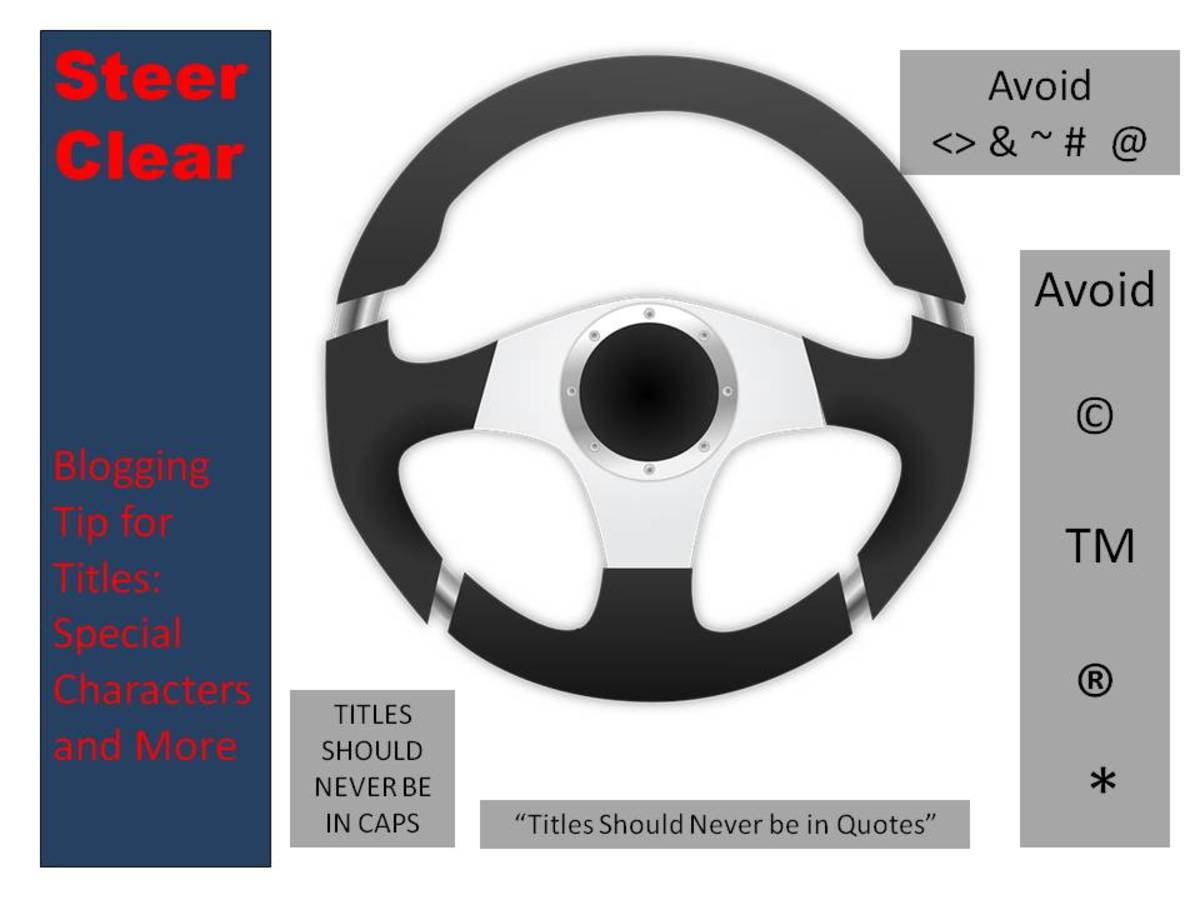- HubPages»
- Business and Employment»
- E-Commerce & How to Make Money Online»
- Search Engine Optimization
Do You Know Your SEO Keywords?
The heading may sound a bit odd! After all, “what would be my SEO keywords”, you might ask. Well, to begin with, if you’re reading this article, I assume you own at least one website, and you want to rank high in search results for the key-terms you think your site is good at.
If you have just a toehold in the mammoth vehicle called search engine optimization, you would have surely heard from its early passengers that unless the pages of your website are ‘optimized’ with popular keywords – those that people type in frequently to get information from the search engines – the chance of their getting higher ranks in search results is almost nil.
So, my definition of ‘your’ SEO keywords will be to ferret out those search terms that are popular, and more importantly, are relevant for your website. The trick is how to know those words, and how to verify how popular they are.
However, what turns out as irritating in your efforts is that there is no one tool that can give you the results with the fullest guarantee. Different tools have different takes on which words or combination of words are more popular than the others, and so the best option for you will essentially be 2-fold:
- Try different tools time to time, and identify a pool of about 7 to 8 SEO keywords for your needs, instead of wasting time on just one or two ‘best’ keywords.
- Create contents in your website, each page optimized for each of those 7 to 8 keywords identified above, and then create more pages using variations of those keywords.
Let us now try to identify some popular keywords using free tools and techniques. For small website owners the good news is that there are quite a few excellent keyword tools available free for use, one of which is the AdWords Keyword Tool from Google.
Using Google Keyword Tool
Suppose your business deals in all kinds of jewelry. If this is your business, in all likelihood you may be dealing in a specific type of jewelry, but to understand the concept better, let us consider all types of jewelry.
Typing the word ‘jewelry’ in the AdWords Keyword Tool fetches a large number of keywords (see the image below). Let me pick up 7 from the top 16 keyword phrases, highlighted in the image.

Next, let me select exact match type on the left pane, which means that the search is being done with the keywords within quotes, e.g. “handmade jewelry”. The number of global monthly searches indicates the demand for each keyword, and the figures are as under (note the figures vary from day to day but they do give a trend):
“fashion jewelry” 673,000
pages
“handmade jewelry” 301,000 pages
“vintage jewelry” 110,000
pages
“costume jewelry” 90,500 pages
“antique jewelry” 74,000 pages
“designer jewelry” 49,500 pages
“crystal jewelry” 14,800 pages
As you can see, all the chosen keywords plus the other 9 not chosen are highly popular and competitive. For the sake of brevity, the remaining portion of the data to the right is not shown in the image. But if you do the same search yourself, you’ll see that all these keywords have quite high search volumes.
Let us proceed to the next step.
Exact Match Search
Let us now do exact match search for the chosen keywords. This will give us the supply-side figures, which is the number of pages that have these exact keywords in them. The results from Google are as under:
“fashion jewelry” 7,980,000
pages
“costume jewelry” 2,110,000 pages
“handmade jewelry” 1,040,000 pages
“vintage jewelry” 923,000 pages
“designer jewelry” 920,000 pages
“crystal jewelry” 794,000 pages
“antique jewelry” 755,000 pages
As you can see, the order of the keywords in terms of number of pages having them has changed. Fashion jewelry has the maximum number of pages in supply, and antique jewelry the least. The supply of the pages optimized for the keywords is of course many times more than their demand.
In-title Exact Match Search
In this step we will try to find out the number of pages that have the exact keywords in the page title. This is important because keyword in page title is considered the most important SEO step. Accordingly, our search term is modified as “intitle:”handmade jewelry””. Here are the results we got:
“fashion jewelry” 281,000 pages
“costume jewelry” 119,000 pages
“vintage jewelry” 48,000 pages
“handmade jewelry” 44,100 pages
“crystal jewelry” 22,500 pages
“antique jewelry” 30,200 pages
“designer jewelry” n/a
Trying To Make Sense
Figures are helpful when they convey some concrete meaning.
What I’ve explained above can be summarized in 3 steps:
- Using Google’s AdWords Keyword Tool we have identified the most popular search
terms connected with the word ‘jewelry’. We have also noted the number of
global monthly searches for 7 top key-phrases with exact match as the criteria.
In other words we have known the demand for those 7 keywords for exact match.
- In step 2 we simply searched Google for those keywords for exact match. This
gave us the supply of web pages that have those exact phrases.
- Lastly, in step 3 we fine-tuned the work at step-2 by doing exact match search for the 7 key-phrases appearing in the page title. The figures obtained at different steps indicate the relative importance of the key-phrases for both their demand and supply in the web space.
Conclusion
Fashion jewelry is clearly the most popular among the 7 chosen keywords from both the demand and the supply side. There is an element of surprise though! For at least 4 key-phrases, the demand is more than their supply in the page titles. That may look like opportunity waiting to be tapped.
Yet, starting fresh, climbing through the heap of pages already optimized, calls for hard work. Search engine optimization is not easy, but the least you can do is to know the right SEO keywords for your website before you hit the work in earnest.
Lastly, ensure that you use more keyword tools like Google Insights, the Search-based Keyword Tool (or SKTool), Google Trends, and so on. They will open up more keyword possibilities (and perhaps add a bit of confusion too!) you may wish to know. And don’t forget to check out my article on 6 top Google tips that will help you succeed with your website.







